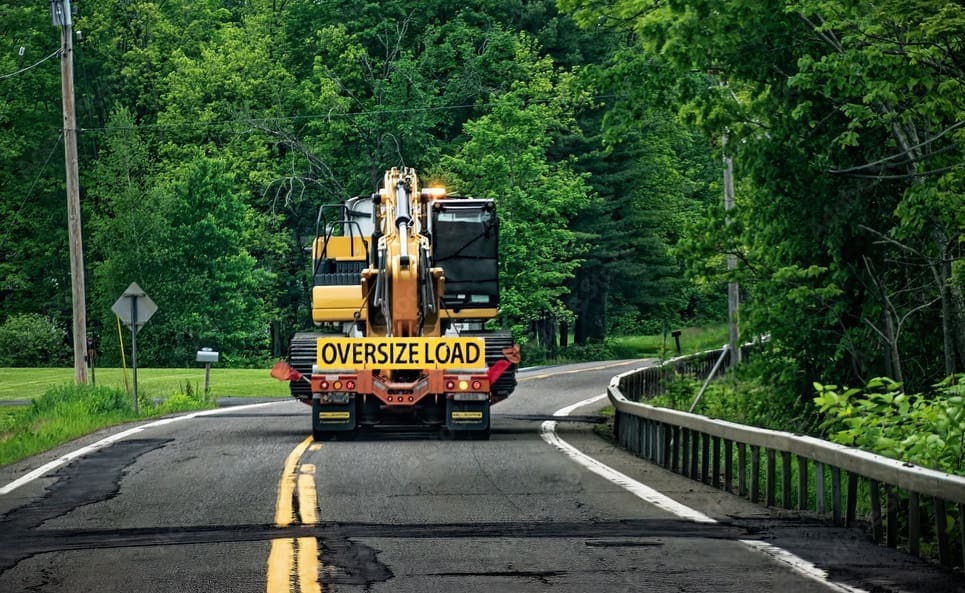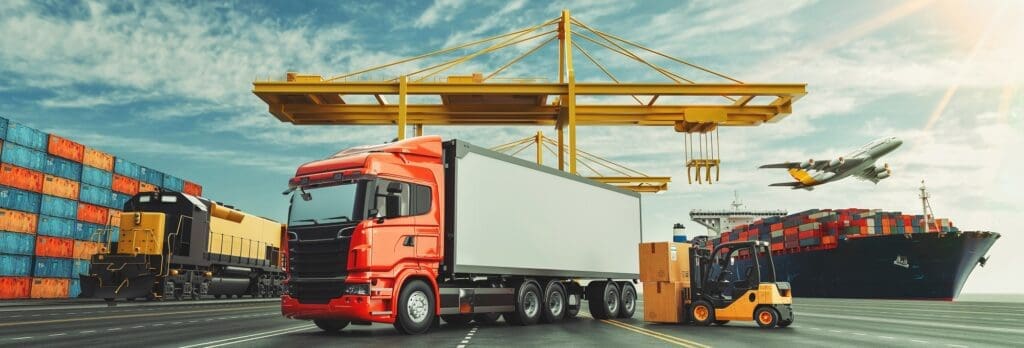Heavy equipment such as large construction vehicles, agricultural equipment, and mining equipment present logistical challenges when it comes to transportation. Their size and weight mean specialized equipment and processes are needed to ensure they arrive at their destination safely.
Heavy haul trucking is needed to make sure oversized equipment makes it to its destination safely. Next Exit Logistics provides heavy equipment hauling in Dallas, Texas and beyond.
What Are Heavy Haul Transportation Services?
Heavy hauling is any trucking that involves oversized and overweight loads. Heavy equipment tends to be exceptionally tall, wide, or heavy, often exceeding normal legal limits on loads. These are sometimes referred to as super loads.
These types of loads may require specialized transport vehicles from our fleet. Special routing and support measures—such as escorts or loading equipment like forklifts—may also be required. On top of that, drivers need to be highly experienced and licensed to be allowed to move these loads. Our team has the expertise to handle any job that requries heavy haul transportation.
What Qualifies as an Oversized Load?
A load that exceeds legal regulations in terms of size and weight is considered to be a heavy load. In general, that means the equipment meets any of these qualifications:
- Over 80,000 pounds in total weight
- Over 8.6 feet wide
- Over 13.6 feet tall (14 feet in Texas)
- Over 53 feet long
Heavy equipment such as cranes, construction equipment, military vehicles, and more often qualify. This includes machinery like bulldozers, excavators, and wheel loaders. To handle loads with these weights and dimensions, specialized trailers such as RGN (removable gooseneck) or articulated trailers are often needed. Our company has access to a wide variety of trailers to meet your shipment needs.
Heavy Hauling Axle Restrictions
Moving heavy equipment requires a thorough knowledge of the legal weight limits involved. These weight limits are determined by the number and type of axles on the trailer. Under federal law, for instance, these limits are as follows:
- Steer axles: 12,000 pounds. These are the first axles on a truck and some articulated trailers.
- Single axles: 20,000 pounds. These are axles spread out more than 10 feet apart.
- Tandem axles: 34,000 pounds. These are axles paired within five feet of each other.
- Drive axles: 34,000 pounds. These are tandem axles on the tractor or certain trailers.
Individual state requirements may vary from these requirements, so it’s important to determine the exact route your load will need to take when handling heavy haul logistics. This is a key part of our plan for every haul.
Required Permits for Heavy Equipment Hauling
In addition to having the right trailer for your load, your heavy haul transportation broker will also need to secure all necessary permits. Each permit is usually issued on a per-load basis. In Texas, some of the oversized load permits that may be required for heavy equipment include:
- General Single-Trip: For weights up to 254,300 pounds. Oversized loads require route inspection certification.
- Super Heavy: For loads over 234,300 pounds or which exceed axle weight limits.
- Single-Trip Mileage Permits for Cranes and Well-Servicing Units: For cranes and well-servicing equipment that exceeds size and weight limits.
- Self-Propelled Off Road Equipment: For moving off-road equipment. Maintenance fees may apply to especially heavy equipment.
- 30/60/90-Day Permits: For loads that are overwide or overlong.
Guide cars, safety flags, banners, lights, and escorts may be required as well to ensure a safe transit.
How Next Exit Logistics Can Help With Your Haul
When it comes to heavy haul services and equipment transportation, there are many factors to take into account. As one of the top Texas heavy haulers, Next Exit Logistics has all the certifications and licenses necessary to oversee your haul, and we know exactly what permits and vehicles are needed to get your equipment from point A to point B as safely and efficiently as possible.
We serve customers in Texas, across the country and even nationwide. For all your heavy hauling needs and to get a quote, contact Next Exit Logistics today. Our professional team is ready to deliver your cargo.




